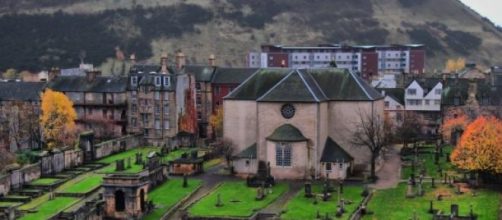A woman is shouting at me in the street. She is pushing her head forward, her eyes are narrowed, nostrils flaring like an anxious horse. "Doesn't matter what the Scot's vote!" she screeches, her voice crackling with frustration. "We'll always get what the English vote for."
It is an ironic shout because this year it is the Scottish electorate who have proved the most significant force in, what has developed into, a fascinating multi-party contest.
In 2010, the pro-independent party took six seats at the UK election, five years on and they look set to take an astonishing 49 - on latest voting intentions (12/04/2015).
This, of course, might have changed by May 7, but it is likely that the SNP will take a sizeable proportion of the 59 seats on offer in Scotland. This would make it near impossible for Ed Miliband and the Labour Party to win a majority and leave them struggling to form a government.
"Traditionally, we would have said that Scots make a distinction between elections at different levels," Dr Alan Convery, lecturer in politics at the University of Edinburgh, told me. "Labour did really well at the UK 2010 election, but had a bad night at the Scottish Parliament elections in 2011. It might be that many Scots have changed their view about who is best to represent their interests at Westminster. It used to be Labour, but now it might be the SNP."
Seven months on from the September 18th referendum on independence, in which the yes camp was defeated 55% to 45%, a battle may have been lost, but the war is still being fought.
It is clear there is still a large group of pro-independence minded voters, and an undercurrent of sentiment for cutting all ties with the United Kingdom.
Post independence referendum, the SNP have regrouped and strengthened their position. They have a new leader, Nicola Sturgeon, who slid seamlessly into the role after the resignation of Alba's political pugilist Alex Salmond.
In addition, the party has quadrupled its membership to become the largest party in Scotland with over 100,000 signed up card carriers. Far from being despondent in defeat the pro-independence faction among the Scottish electorate seem to be enjoying a ride on an incredibly big wave.

